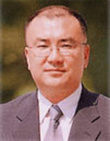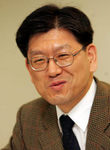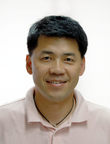Posted on : Nov.9,2006 14:43 KST
Modified on : Nov.10,2006 13:09 KST
Experts weigh in on how N.K. policy will be reshaped, if at all
Experts see the results of the midterm congressional elections in the U.S. leading to little change in Washington’s stance toward Pyongyang and its nuclear ambitions. They also agree that priority will be placed on Iraq rather than on the North Korea nuclear issue. Nevertheless, the victory of the Democrats in the elections highlights the failure of President George W. Bush’s North Korea policy. Some experts say that more and more Republicans are even distancing themselves from the beleaguered president as his term draws to an end.
Prof. Son Byeong-kwon of Chung-Ang University= There will be no marked change in U.S. policy toward North Korea. The U.S. will go ahead with the passage of a bill under which a North Korea policy coordinator will be appointed and obliged to report to congress twice a year to brief lawmakers on North Korea matters.
What is certain is that unilateral moves by President Bush will come to a halt since he will not be able to to go ahead with his North Korea policy without listening to Democrats first. The Democratic Party will likely step up its criticism of the administration’s failure in preventing the North from performing a nuclear test, but such finger-pointing will not lead to an immediate change in Washington’s North Korea stance. With the nuclear test last month, the Democrats cannot continue to press the administration to have one-on-one talks with Pyongyang or demand a change in its [hard-line] North Korea policy.
With the North going nuclear, however, it will be tough to seek a significant change. The Republicans and Democrats are not different in their stance on the counterfeiting of U.S. currency. I expect that the U.S. will likely maintain a two-pronged policy, seeking dialogue through the six-party talks and applying pressure through U.N. sanctions.
One Democrat that catches people’s attention is Hillary Clinton, who has emerged as a hopeful for the upcoming presidential election. She will try to come up with a voice different from those heard in the current administration if she takes office. She would also likely listen to former members of her husband’s staff in dealing with the North.
Prof. Park Myeong-rim of Yonsei University’s Graduate School of International Studies= There will be no big change, even if the Democrats dominate Congress. Washington will continue to place top priority on issues of anti-terrorism and non-proliferation of nuclear weapons. But a Congress dominated by the Democrats would more likely pursue one-on-one talks with Pyongyang, a turnaround from the past, when the Republicans had rejected such bilateral dialogue.
It would not be right to say that the Republicans are in favor of military solutions and the Democrats prefer peaceful ways in dealing with the North Korean nuclear issue. Remember that the Bill Clinton administration mulled bombing the North.
If there is one difference between the two parties, it would be about China. The Bush administration has been seeking strong ties with Japan, which has consequently applied increasing pressure on the Pyongyang regime. It remains to be seen if pressure from the Democrats will play a role.
Trust is the most important factor in relations between the U.S. and North Korea. Given that the North once compromised with the Democrat-led government on its nuclear weapons program, it can be imagined that Pyongyang would be more open-minded if the Democrats’ voices are reflected in U.S. foreign policy. Still, I remain cautious in expecting an abrupt change in Washington’s North Korea stance.
Prof. Kim Jun-hyeong of Handong University= There will be no change in the short term except that the six-party talks will resume. A tug-of-war among participants in the multilateral talks will continue. But in the long term, the Bush administration, whose term is nearing its end, will likely lose its grip on the proceedings. Besides, the Republicans will find it difficult to support President Bush in his North Korea policy since they themselves will be busy looking for ways to survive.
Still, the Democrat-dominated congress will have limited influence on the government’s North Korea policy, since this involves issues of national security, as well.
Nonetheless, who will be appointed as the North Korea policy coordinator will serve as a litmus test to indicate which way the Bush government will go. If he is a hard-liner, the Bush administration will reaffirm its determination to go ahead with its North Korea policy. If he is a candidate recommended by the Democrats, the government would show its willingness to resolve the current nuclear stalemate through diplomatic means.
[englishhani@hani.co.kr]









